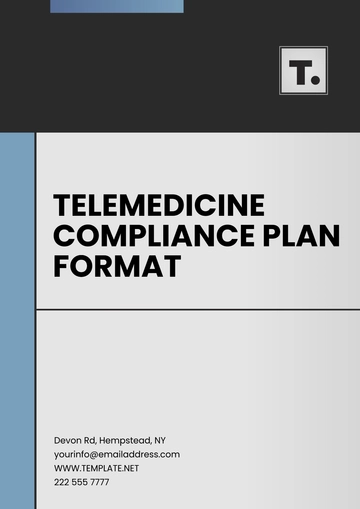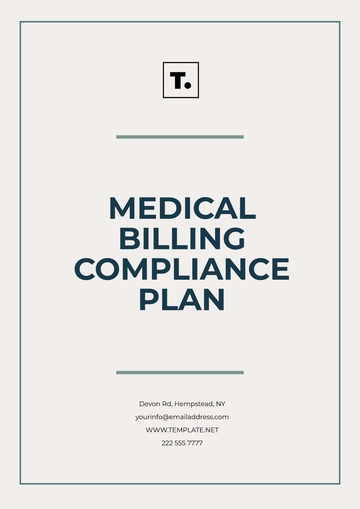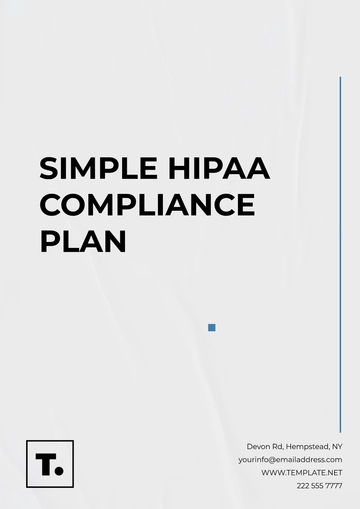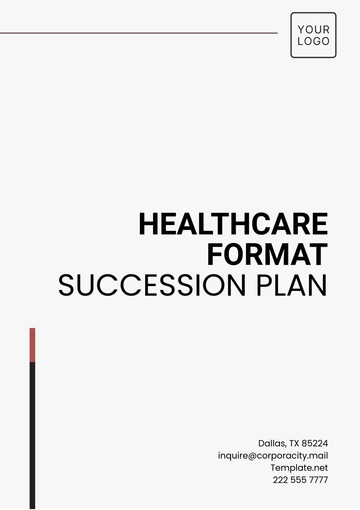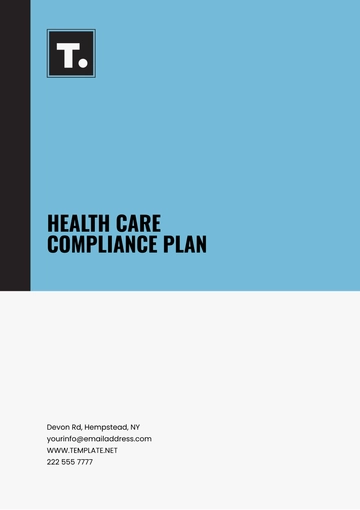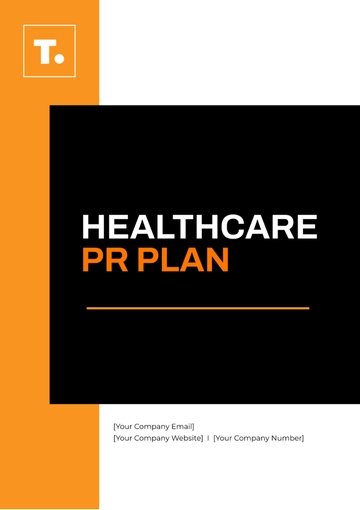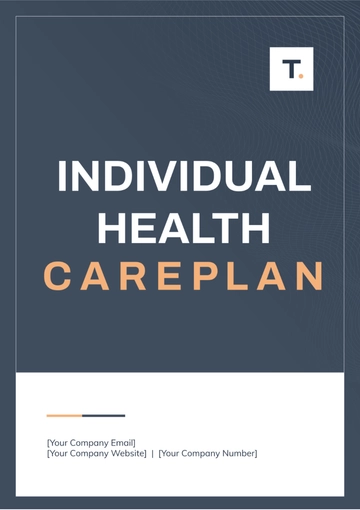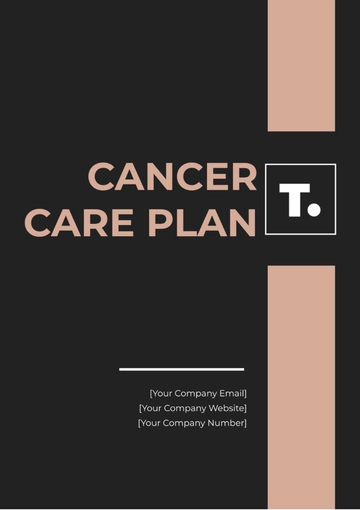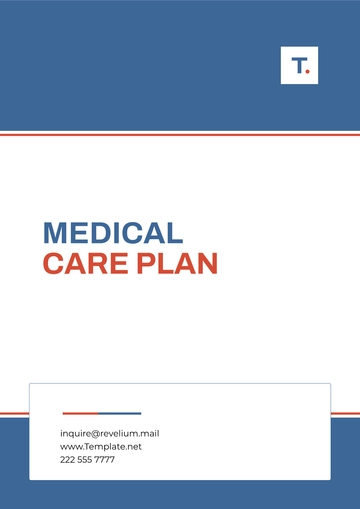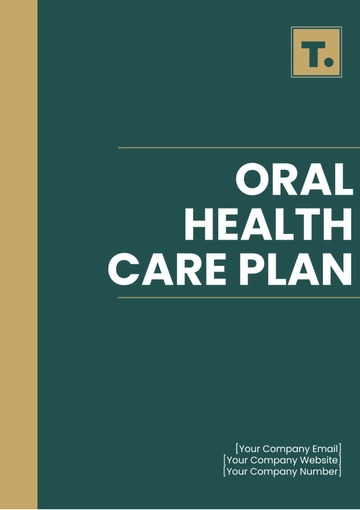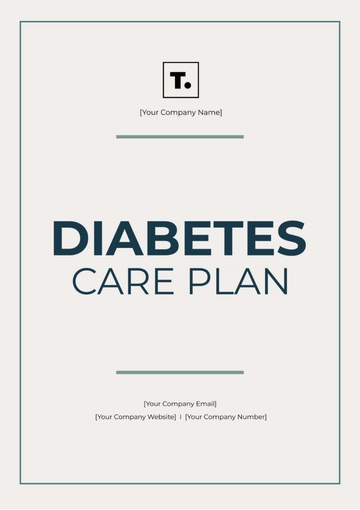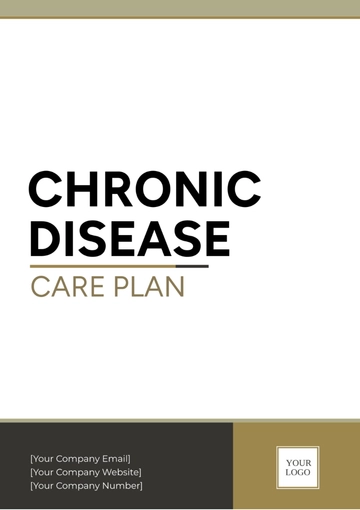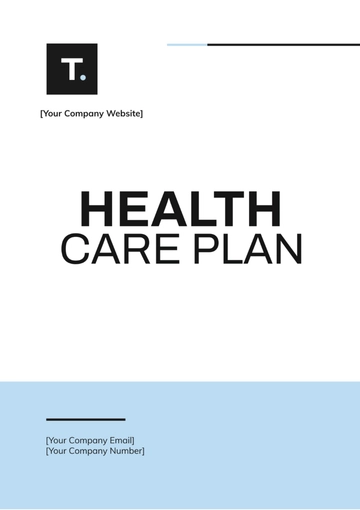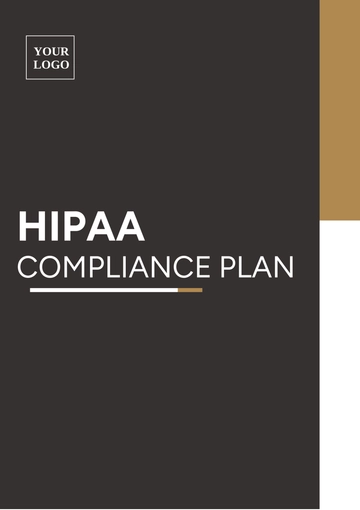Free Medical Billing Compliance Plan
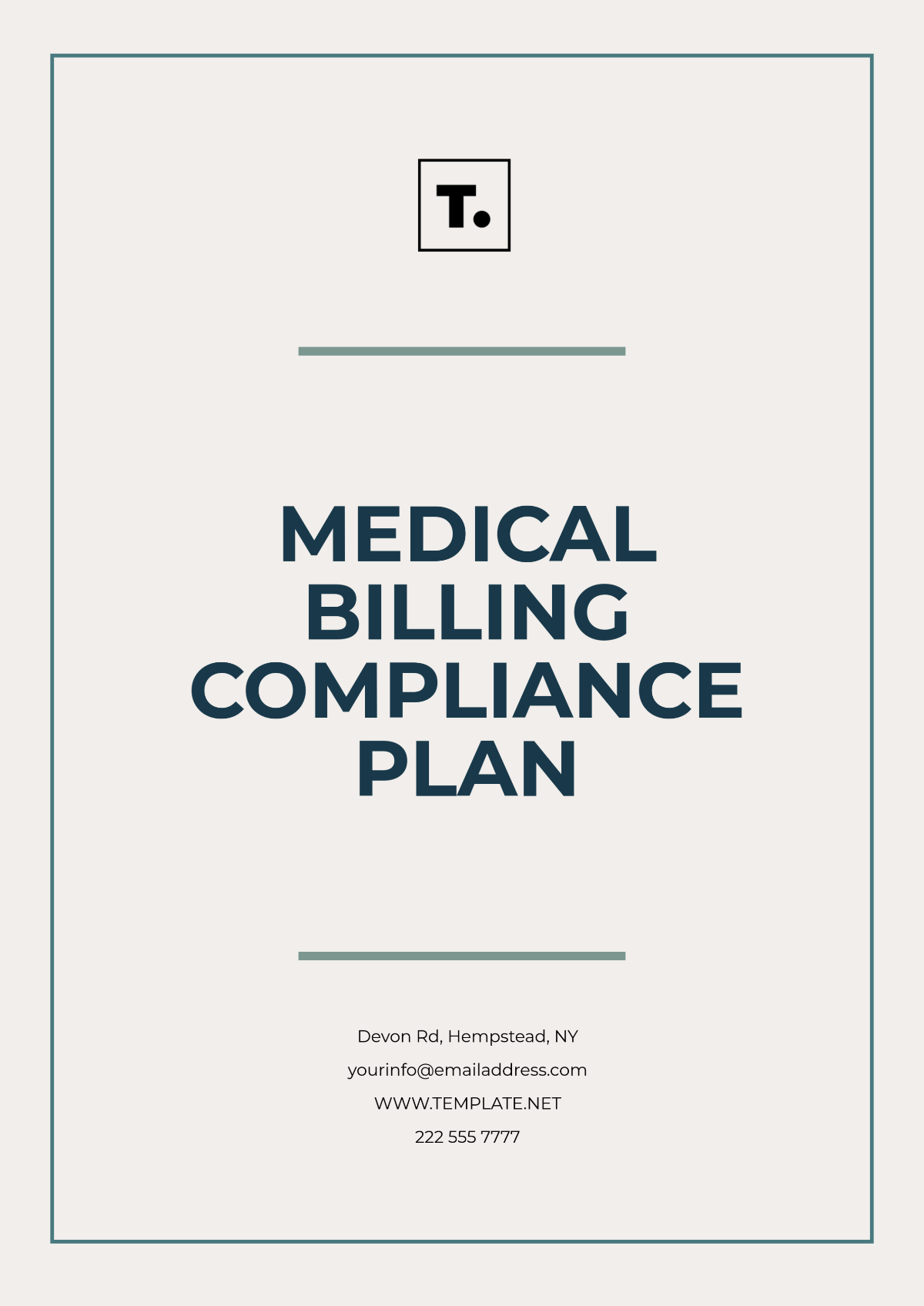
Date: [Date]
Prepared By: [Your Name]
I. Introduction
The purpose of this Medical Billing Compliance Plan is to ensure that all billing practices adhere to applicable federal, state, and private payer regulations. It is designed to promote accuracy, reduce billing errors, and avoid fraud or abuse. This plan provides guidelines and policies to maintain compliance with laws, regulations, and payer requirements.
II. Purpose
The primary objectives of this Medical Billing Compliance Plan are to:
Prevent improper billing practices.
Ensure accurate coding and documentation.
Identify and correct billing errors promptly.
Comply with all applicable healthcare laws, including the Health Insurance Portability and Accountability Act (HIPAA), the False Claims Act, and other regulatory requirements.
Safeguard against billing fraud, waste, and abuse.
III. Scope
This plan applies to all individuals and entities involved in medical billing, including:
Healthcare providers
Billing staff
Compliance officers
Auditors
External billing contractors or third-party vendors
IV. Compliance Officer and Responsibilities
The Compliance Officer will oversee the Medical Billing Compliance Plan, ensuring its implementation and effectiveness. Responsibilities include:
Developing and updating the compliance plan.
Educating and training staff on billing procedures and regulations.
Monitoring the billing process for adherence to regulations.
Conducting audits of billing practices and addressing any discrepancies.
Reporting violations to management and regulatory bodies as required.
V. Billing and Coding Guidelines
The following billing and coding guidelines must be followed to ensure accurate claims submission:
Coding Compliance: All medical services provided must be accurately coded using the most current ICD-10, CPT, and HCPCS codes. Only services rendered should be billed, and services must be supported by proper documentation in the patient’s medical record.
Charge Capture: Ensure that all billable services, tests, and procedures are captured and included in the claim. This includes ensuring that modifiers are appropriately applied where applicable.
Bundling and Unbundling: Services must be appropriately bundled according to payer guidelines. Unbundling services for reimbursement purposes is prohibited.
Timely Filing: Ensure that claims are submitted within the filing deadline of each payer to avoid denials or penalties.
VI. Compliance and Training
Staff Education: All billing and coding personnel must undergo training on the requirements of this compliance plan, including billing codes, payer-specific rules, and fraud prevention techniques.
Ongoing Education: Regular updates and refresher courses must be provided to billing staff to keep them informed about changes to regulations, coding systems, and payer requirements.
Compliance Audits: Conduct regular audits to verify that claims are being filed accurately and in compliance with this plan. Audits will include random checks, pattern analysis, and reviews of claims that have been rejected or denied.
VII. Billing Audits and Monitoring
Internal Audits: Internal audits will be conducted quarterly to review a sample of claims and verify that they meet billing requirements. This will help identify patterns of overbilling, underbilling, or improper coding.
Corrective Actions: If errors are identified in the audit, corrective actions will be implemented, including re-filing corrected claims and providing additional training to staff.
External Audits: If necessary, engage third-party auditors for comprehensive audits to ensure compliance with external payer requirements.
VIII. Fraud, Waste, and Abuse Prevention
Fraud Prevention: Billing for services not provided, upcoding, unbundling, and other fraudulent activities will not be tolerated. Any suspected fraudulent activity should be reported immediately to the Compliance Officer for investigation.
Reporting Mechanisms: Establish a confidential reporting system where employees can report suspected fraud, waste, or abuse without fear of retaliation.
Investigation and Action: All reports of potential fraud or abuse will be investigated, and corrective actions will be taken, which may include reporting violations to authorities, implementing disciplinary actions, or terminating employment.
IX. Compliance with Laws and Regulations
HIPAA Compliance: Ensure that all patient information is protected according to the Health Insurance Portability and Accountability Act (HIPAA) standards. Patient records should only be accessed by authorized personnel for billing purposes.
False Claims Act Compliance: This plan emphasizes the importance of not submitting fraudulent claims. Claims submitted under false pretenses, such as overstating services rendered, will be subject to penalties under the False Claims Act.
State-Specific Regulations: In addition to federal regulations, this plan must address any state-specific requirements and payer-specific rules for billing and coding.
X. Reporting and Response
Reporting Violations: Any staff member who becomes aware of a violation of the billing compliance policies should report it to the Compliance Officer or use the established reporting system.
Investigative Process: Upon receiving a report, the Compliance Officer will investigate the issue thoroughly. If fraud or abuse is suspected, external legal and auditing assistance may be engaged.
Corrective Actions: If violations are confirmed, corrective measures will be implemented, including training, system modifications, or in severe cases, disciplinary actions and reporting to regulatory bodies.
XI. Record Retention and Documentation
Documentation Retention: All medical billing records must be retained according to federal and state regulations, generally for a period of at least six years.
Access Control: Billing records should be stored in a secure, access-controlled environment to prevent unauthorized access and ensure compliance with HIPAA regulations.
XII. Review and Updates
This Medical Billing Compliance Plan will be reviewed annually to ensure that it remains current with changes in healthcare regulations, payer requirements, and internal operational processes. Updates will be communicated to all staff members to ensure ongoing compliance.
XIII. Conclusion
The Medical Billing Compliance Plan is essential to ensuring accurate and lawful billing practices. By adhering to this plan, healthcare providers can reduce errors, avoid penalties, and promote a culture of integrity and compliance. Compliance with this plan will foster transparency, protect patient information, and help maintain a sustainable and ethical billing operation.
- 100% Customizable, free editor
- Access 1 Million+ Templates, photo’s & graphics
- Download or share as a template
- Click and replace photos, graphics, text, backgrounds
- Resize, crop, AI write & more
- Access advanced editor
Ensure your medical billing practices align with industry standards using the Medical Billing Compliance Plan Template offered by Template.net. This customizable, downloadable, and printable template provides a professional framework to maintain compliance. Editable in our AI Editor Tool, it allows you to tailor the content effortlessly to meet specific organizational needs, ensuring accuracy and efficiency.
You may also like
- Finance Plan
- Construction Plan
- Sales Plan
- Development Plan
- Career Plan
- Budget Plan
- HR Plan
- Education Plan
- Transition Plan
- Work Plan
- Training Plan
- Communication Plan
- Operation Plan
- Health And Safety Plan
- Strategy Plan
- Professional Development Plan
- Advertising Plan
- Risk Management Plan
- Restaurant Plan
- School Plan
- Nursing Home Patient Care Plan
- Nursing Care Plan
- Plan Event
- Startup Plan
- Social Media Plan
- Staffing Plan
- Annual Plan
- Content Plan
- Payment Plan
- Implementation Plan
- Hotel Plan
- Workout Plan
- Accounting Plan
- Campaign Plan
- Essay Plan
- 30 60 90 Day Plan
- Research Plan
- Recruitment Plan
- 90 Day Plan
- Quarterly Plan
- Emergency Plan
- 5 Year Plan
- Gym Plan
- Personal Plan
- IT and Software Plan
- Treatment Plan
- Real Estate Plan
- Law Firm Plan
- Healthcare Plan
- Improvement Plan
- Media Plan
- 5 Year Business Plan
- Learning Plan
- Marketing Campaign Plan
- Travel Agency Plan
- Cleaning Services Plan
- Interior Design Plan
- Performance Plan
- PR Plan
- Birth Plan
- Life Plan
- SEO Plan
- Disaster Recovery Plan
- Continuity Plan
- Launch Plan
- Legal Plan
- Behavior Plan
- Performance Improvement Plan
- Salon Plan
- Security Plan
- Security Management Plan
- Employee Development Plan
- Quality Plan
- Service Improvement Plan
- Growth Plan
- Incident Response Plan
- Basketball Plan
- Emergency Action Plan
- Product Launch Plan
- Spa Plan
- Employee Training Plan
- Data Analysis Plan
- Employee Action Plan
- Territory Plan
- Audit Plan
- Classroom Plan
- Activity Plan
- Parenting Plan
- Care Plan
- Project Execution Plan
- Exercise Plan
- Internship Plan
- Software Development Plan
- Continuous Improvement Plan
- Leave Plan
- 90 Day Sales Plan
- Advertising Agency Plan
- Employee Transition Plan
- Smart Action Plan
- Workplace Safety Plan
- Behavior Change Plan
- Contingency Plan
- Continuity of Operations Plan
- Health Plan
- Quality Control Plan
- Self Plan
- Sports Development Plan
- Change Management Plan
- Ecommerce Plan
- Personal Financial Plan
- Process Improvement Plan
- 30-60-90 Day Sales Plan
- Crisis Management Plan
- Engagement Plan
- Execution Plan
- Pandemic Plan
- Quality Assurance Plan
- Service Continuity Plan
- Agile Project Plan
- Fundraising Plan
- Job Transition Plan
- Asset Maintenance Plan
- Maintenance Plan
- Software Test Plan
- Staff Training and Development Plan
- 3 Year Plan
- Brand Activation Plan
- Release Plan
- Resource Plan
- Risk Mitigation Plan
- Teacher Plan
- 30 60 90 Day Plan for New Manager
- Food Safety Plan
- Food Truck Plan
- Hiring Plan
- Quality Management Plan
- Wellness Plan
- Behavior Intervention Plan
- Bonus Plan
- Investment Plan
- Maternity Leave Plan
- Pandemic Response Plan
- Succession Planning
- Coaching Plan
- Configuration Management Plan
- Remote Work Plan
- Self Care Plan
- Teaching Plan
- 100-Day Plan
- HACCP Plan
- Student Plan
- Sustainability Plan
- 30 60 90 Day Plan for Interview
- Access Plan
- Site Specific Safety Plan
